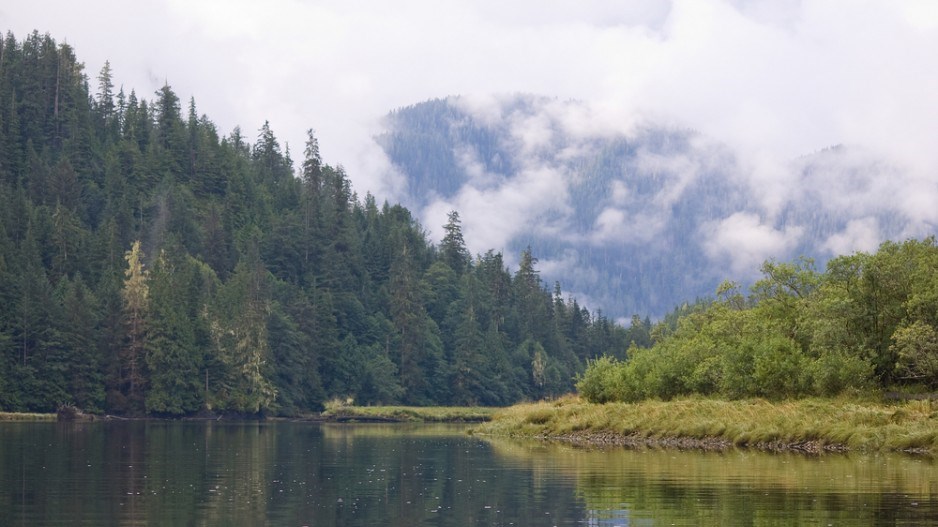A First Nations group is moving ahead with its plan to create and market carbon offsets tied to the Great Bear Rainforest conservation agreement.
Another batch of forest carbon offsets, this set tied to forests on Haida Gwaii, has been verified by various third-party auditors, Coastal First Nations (CFN) and Offsetters verified today.
Revenue from the project will be shared between the British Columbia government and CFN and the Nanwakolas Council.
A historic 2006 agreement protected 50% of the Great Bear Rainforest, on B.C.'s central and north coast, from logging.
But critics have questioned whether Great Bear Rainforest offsets meet the test for additionality, meaning that the project — in this case forest conservation — would not have happened without sales of carbon offsets because of financial or technical hurdles.
Art Sterritt, executive director of Coastal First Nations, said the offsets had been rigourously verified by B.C.'s Forest Carbon Offset Protocol and audited by KPMG.
"It's a very technical report to demonstrate that you meet all the requirements under the protocol," he said. "Once that is filed, you have to go to an independent body who is certified internationally."
The Haida Gwaii offsets are the third and final set of Great Bear Rainforest offsets to be verified. Some offsets from the central and north coast portions of the Great Bear Rainforest area have already been sold, some to the Pacific Carbon Trust (PCT), some to private sector buyers like Vancity and Harbour Air, said Sterritt.
Until recently, the Pacific Carbon Trust bought carbon offsets on behalf of public institutions. Schools, hospitals and municipalities were obliged to buy offsets in order to comply with B.C. legislation that requires publicly funded bodies to achieve carbon neutrality.
The B.C. government recently announced it would shutter the PCT following a scathing auditor general's report which found that several carbon offset projects did not meet the government's own additionality test.
That report did not audit any of the Great Bear Rainforest carbon projects.
While the PCT has been shut down, Sterritt said that public institutions may continue to be purchasers of Great Bear Rainforest carbon offsets, since they are still required to buy offsets for those emissions they cannot reduce.
There is also potential to sell the offsets in California's year-old cap and trade carbon market, Sterritt said.
Offsetters, a Vancouver-based public company, will market Great Bear Rainforest carbon offsets, Sterritt said. Offsetters has also provided technical assistance.
Ben Parfitt, a policy analyst with the Canadian Centre for Policy Alternatives, has been a steadfast critic of the Pacific Carbon Trust and Great Bear Rainforest carbon projects. He said the third-party verification process is not transparent.
"Was it the case that the area of land that was allegedly conserved and spared from logging, was it ever going to be logged?" Parfitt said. "Going back and looking at the literature at the time the big conservation pushes started in the Great Bear Rainforest, they well pre-date discussion about using forests as offsets."
Sterritt declined to say how much the Haida Gwaii offsets are worth. The entire Great Bear Forest Carbon Project will deliver up to one million tonnes of carbon offsets per year for 25 years, as calculated by Offsetters.
"We're not interested to disclose that because it would affect our competitiveness," he said. "If people knew that we were selling to certain groups at certain prices, it would really affect our market price."
Sterritt expects the offsets to continue to sell well, in part because of the compelling environmental and cultural story of the Great Bear Rainforest.
"Part of our strategy is to brand that in such a way that we get what we call charismatic sales, the ability to get the highest price in the market place."




